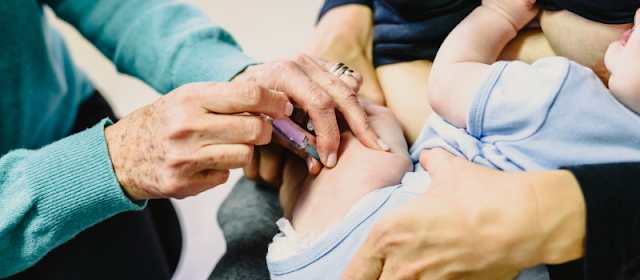[ads id='ads1'] Because infants are highly susceptible to illnesses and hazardous complications, it is crucial to immunize children in order to build their strength. The idea of getting your child immunized against diseases like polio, tetanus, and diphtheria may seem intimidating, but if you're a smart parent, you know that there are many more reasons to get them immunized. Not only immunisations protect your child but it also ensures the safety of other children by reducing or eliminating harmful infections that used to be transmitted from child to child.
Most of kids respond positively to such vaccines, it's best to be patient because overall vaccination benefits outweigh any potential early negative effects.
4 Things To Know About immunising your child in Australia
There are basically 4 major aspects you need to consider when immunising your child in Australia.
1. The Routine of vaccination for children
Australia's National Immunisation Program has a routine for immunising children in Australia without any charge. Routine childhood immunisations depend on the years of a child.
The first one is after the birth is Hepatitis B (usually offered in the hospital).
For 2 months (can be given from 6 weeks of age), 4 months, 6 months child will be immunized against Diphtheria, tetanus, whooping cough, hepatitis B, polio, Haemophilus influenzae type b (Hib), Rotavirus, and Pneumococcal.
When a child is 12 months old, vaccination against Meningococcal ACWY Measles, mumps, rubella, and Pneumococcal. Whereas, in 18 months, immunization against Haemophilus influenzae type b (Hib), Measles, mumps, rubella, chickenpox (varicella), Diphtheria, tetanus, pertussis (whooping cough) is given.
At 4 year, a child is again given vaccines for Diphtheria, tetanus, pertussis (whooping cough), and polio.
Bonus Tip: You must be eligible for family assistance payments like the Family Tax Benefit (Part A), Child Care Subsidies, and immunization requirements for childcare. In some states and territories, your child must also comply with the immunization standards, or you, as a parent, must present proof of your immunizations.
2. Vaccination for Aboriginal and Torres Strait Islander children
Routine childhood vaccinations also include Aboriginal and Torres Strait Islander children with extra free vaccines, which include a) additional doses of pneumococcal vaccine b)meningococcal B vaccine c) hepatitis A vaccine for children living in WA(Western Australia), NT(Northern Territory), SA (South Australia) and Qld(Queensland) and d) annual influenza vaccine for each year from 6 months.
3. Know your Child/Children with medical risk conditions
Some children have health issues that put them at risk for sickness. They can receive more immunizations at no cost. A number of vaccines, including those for influenza, pneumococcal disease, haemophilus influenzae type b, and meningococcal disease, are also covered by insurance. However, keep in mind that not all medical risk situations are free.
4. Check if you Missed any vaccinations
You might miss giving your kids their necessary childhood vaccines because of certain situations, but don't worry—you can still obtain them for free from the government until they are 20. If your child has not had all of the advised immunizations, you must also check the National Immunization Program schedule and consult your doctor.
Wrapping Up!
Immunisation is extremely important to protect children against harmful diseases. As a parent, you should never compromise on immunisation. For complete detail on immunising your child in Australia then, you can check out Immunisation in Australian Government's Department of Health and Aged-Care.
For further information, you can also study Immunising your child.
[ads id='ads2']

Post a Comment
Post a Comment